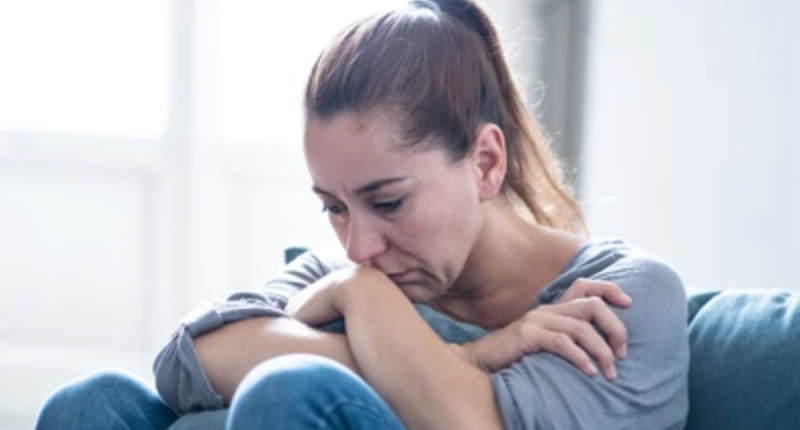Addressing Loneliness as a Global Health Issue: WHO Establishes New Commission on Social Connection
The World Health Organization (WHO) has taken a significant step towards combating loneliness, a pressing health concern, by creating a new Commission on Social Connection. This initiative aims to prioritize social connection, accelerate the implementation of solutions in countries of all economic levels, and foster a global movement to address this pervasive issue.
Loneliness is a prevalent problem worldwide, with staggering statistics highlighting its impact. According to Treetop ABA Therapy, a staggering 52% of Americans report feeling lonely, while 59% claim to have a closest friend, and a concerning 12% admit to having no close friends at all. Moreover, 47% of Americans lament the lack of meaningful relationships in their lives.
A recent Gallup National Health and Wellbeing Index survey indicates a slight decrease from 2020 and early 2021, with 17% of American adults reporting feeling lonely “a lot of the day yesterday.” Despite this decline, an estimated 17% of American adults remain significantly lonely, underscoring the persistence of this issue.
To address this pressing issue, the WHO has formed a Commission of eleven distinguished policymakers, advocates, and thought leaders, co-chaired by U.S. Surgeon General Dr. Vivek Murthy and African Union Youth Envoy Chido Mpemba. Over the next three years, the Commission will delve into the critical role of social connection in improving health for individuals of all ages and provide recommendations for building strong social connections at scale.

The Commission’s scope extends beyond individual health, exploring how social connection fosters social growth, economic advancement, and innovation while enhancing the quality of life in our communities and society. It is important to recognize that social pain, the feeling of disconnection from others, and social isolation, having too few social contacts, are common experiences. Contrary to popular belief that loneliness and isolation primarily affect older adults in wealthy nations, these issues harm people of all ages and socioeconomic backgrounds worldwide. One in four senior citizens experiences social isolation, and rates are comparable across all regions.
The WHO’s Commission on Social Connection represents a significant step towards addressing loneliness as a global health priority. By prioritizing social connection, accelerating solutions, and raising awareness, we can foster a more connected and supportive world for all.
“The widespread prevalence of social isolation and loneliness across the globe poses significant threats to our health and well-being. Individuals lacking sufficient strong social connections face an increased risk of developing various health conditions, including stroke, anxiety, dementia, depression, and even suicide,” stated Dr. Tedros Adhanom Ghebreyesus, the WHO Director-General. Dr. Tedros further elaborates that the WHO Commission will explore the most innovative approaches to combating social isolation and loneliness and play a pivotal role in elevating social connectedness to a global health priority.
The Ripple Effects of Loneliness: Unveiling Its Impact on Health and Well-being
The detrimental effects of loneliness on overall health are well-documented. Studies have shown that social isolation carries an equal or even higher risk of premature mortality compared to other well-established risk factors such as smoking, binge drinking, physical inactivity, obesity, and air pollution. Additionally, social isolation has been linked to an increased risk of anxiety, depression, and cardiovascular disease, demonstrating its profound impact on both physical and mental well-being.
The newly established WHO Commission will spearhead a global initiative to address social connection, with a focus on raising awareness and fostering collaborations that will lead to the development and implementation of evidence-based solutions for countries, communities, and individuals. This agenda is particularly crucial in light of the COVID-19 pandemic and its far-reaching social and economic consequences, which have significantly weakened social ties worldwide.
I am filled with immense enthusiasm to collaborate with this exceptional group of Commissioners in championing social connection, an indispensable element of well-being. United in purpose, we can strive to create a world that is less lonely, healthier, and more resilient.”
This rephrased version captures the essence of Dr. Vivek Murthy’s message while enhancing its clarity and impact. The use of stronger verbs and more evocative language conveys a sense of determination and hopefulness in addressing the issue of loneliness.
The far-reaching consequences of social disconnection extend beyond personal health, impacting various aspects of life. In the realm of education, social isolation among high school students has been linked to a higher likelihood of dropping out of university. Similarly, in the professional sphere, feeling disconnected and unsupported in one’s workplace can lead to diminished job satisfaction and performance.
To address this pressing issue, the WHO-supported Commission on Social Connection will convene its inaugural leadership meeting from December 6 to 8. This gathering will set the stage for the Commission’s three-year initiative, culminating in the release of a flagship report at the midpoint. This report is expected to serve as a catalyst for action, providing evidence-based strategies to foster social connection and mitigate its detrimental effects on education, employment, and overall well-being.
Signs of Loneliness
Feeling sad or empty.
Feeling isolated or disconnected.
Having a longing for companionship.
Lacking close relationships.
Experiencing social anxiety.
Engaging in negative self-talk.
Undergoing changes in sleep or appetite.
Withdrawing from activities.
Engaging in self-destructive behaviors.
Tips to Combat Loneliness
1. Connect with others in person. This could involve joining a club or group, volunteering, or taking a class. Spending time with others can help you feel more connected and less alone.
2. Get involved in your community. This could involve attending local events, volunteering, or joining a neighborhood association. Getting involved in your community can help you meet new people and make new friends.
3. Reach out to old friends or family members. Even if you haven’t talked to them in a while, they may be feeling just as lonely as you are. A simple phone call or email can make a big difference.
4. Get a pet. Having a pet can provide companionship and reduce feelings of loneliness.
5. Practice self-care. This means taking care of your physical and mental health. Eating healthy, getting enough sleep, and exercising regularly can help you feel better both physically and mentally.
6. Seek professional help if needed. If you are feeling overwhelmed by loneliness, a therapist can help you develop coping skills and strategies for connecting with others.
In addition to these general tips, there are also a few things you can do to combat loneliness if you are an older adult:
7. Stay active and engaged in the community. There are many activities and groups specifically for older adults. Getting involved in these activities can help you meet new people and make new friends.
8. Use technology to connect with others. There are many online and offline groups and communities for older adults. These groups can be a great way to connect with others who share your interests.
9. Don’t be afraid to ask for help. If you are feeling lonely, don’t be afraid to ask for help from friends, family, or a therapist. There are many people who care about you and want to help.
Remember, you are not alone. There are many people who feel lonely, and there are many things you can do to combat loneliness. By taking steps to connect with others and take care of yourself, you can make a big difference in your own life and the lives of others.
Key Takeaway
Loneliness and social isolation are significant health concerns: Loneliness and social isolation have been linked to an increased risk of various health conditions, including stroke, anxiety, dementia, depression, and even suicide.
The WHO has established a Commission on Social Connection: The WHO has formed a Commission to address loneliness and social isolation as global health priorities. The Commission will explore innovative solutions and provide recommendations for large-scale social connection building.
Social connection has a wide range of benefits: Social connection not only improves individual health but also fosters social growth, economic advancement, and innovation, enhancing the quality of life in communities and society as a whole.
Loneliness and isolation affect people of all ages and backgrounds: Contrary to popular belief, loneliness and isolation are not limited to older adults in wealthy nations. They harm people of all ages and socioeconomic backgrounds worldwide.
The WHO Commission’s work is crucial in addressing loneliness: The WHO Commission’s efforts are essential in raising awareness about loneliness and social isolation, developing evidence-based solutions, and promoting social connection as a global health priority.








